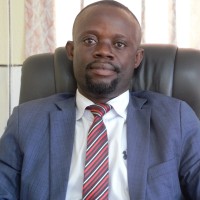BACHELOR OF ARTS (B.A.) MEDIA AND COMMUNICATION STUDIES
Why Study B. A. Media and Communication Studies (BAMCS) at Kessben University College?
The uniqueness of our Bachelor of Art Media and Communication Studies (BAMCS) programme is that it emphasizes an in-depth understanding and critical assessment of new and old media technologies; the centrality of media in politics, economics, technology, marketing, social life, global and local culture; the contemporary and historical impact of media on individuals and societies. Kessben University College sincerely believes that “media” comprises all forms of mass media (print, television, radio, film), new media (digital multimedia, the Internet, networked media), representational media (oral/aural, written, visual), as well as their associated technologies, and the social and cultural institutions that enable them, and are defined by them. Our BAMCS programme is, therefore, designed to nurture students’ aptitude, intelligence and agility to constructively express and communicate ideas, arguments, historical findings, creative and innovative insights.
With small class sizes, students also develop their writing and oral skills in both investigative and creative contexts, often expressing themselves using nascent media tools and technologies. Students learn to apply theoretical concepts to creative work and empirical insights about production to their intellectual research. Students are able to appreciate and apply knowledge of human communication and language processes as they occur across various contexts, e.g., interpersonal, intrapersonal, small group, organizational, media, gender, family, intercultural communication, technologically mediated communication, etc. from multiple perspectives. Students pursue specific interests in digital media, television and film studies, video and audio production, print, radio and television journalism, photography, advertising, and public relations. In partial fulfillment of our institutional requirements, students further their career readiness by completing professional internships in a variety of arenas or areas as mentioned above.
What Are The Entry Requirements?
Admission is open to:
- WASSCE holders with credit passes (A1-C6) in English Language, Mathematics and Integrated Science/Social Studies plus credit passes (A1-C6) in three elective subjects with an aggregate score of 36 or better;
- SSSCE holders with credit passes (A-D) in English Language, Mathematics and Integrated Science/Social Studies plus passes (A-D) in three Elective subjects with an aggregate score of 24 or better;
- Advanced Level holders with credit in at least Five (5) subjects at the GCE ‘O’ Level (or its equivalent) including English and Mathematics, plus Two (2) A’ Level passes, including any of the following: Government, History, Literature in English, French, Ghanaian Language. They must also have a pass in General Paper;
- Higher National Diploma Holders in a related course with at least 2nd Class Lower Division. In addition, applicants must have acquired at least Two (2) years post HND working experience.
- University Diploma Holders in a related course with at least a Pass. In addition, applicants must have acquired at least Two (2) years post Diploma working experience;
- Mature Students: The applicant must have attained at least, the age of 25 years at the time of application. In addition, applicants should have at least credit passes in English Language and Mathematics in SSSCE/WASSCE or any other nationally recognised standard High School level examinations. In lieu of such qualification, applicants must pass a Mature Students’ Entrance Examination conducted by the College in English Language, Mathematics and Aptitude Test; or
- Foreign Applicants should have any of the above qualifications or their equivalences from an accredited/recognised institution.
Our Faculty Members?
In fulfillment of its core value of culture of excellence, Kessben University College employs competent, level-headed faculty members who are duly qualified to accomplish the mission and goals of the programme in particular and the institution in general. Our faculty members are human-centred, approachable and open-minded with indepth knowledge, skills and professionalism to enhance student learning experience.
What is the Student Academic Assessment?
Students would be assessed on a continuous basis and will be required to draw their consolidated marks from a host of sources – class tests, quizzes, essays, oral presentations, tutorials, studio practice, assignments, mid-semester examination, computer laboratory works, projects, seminars, etc. Attendances at lectures, seminars, etc. are equally important. Continuous assessment allows students the opportunity to show (either individually or in groups) their ability to handle the range of learning tasks and work environments they are exposed to. The mid-semester examination of not more than one (1) in each course shall be organized during each semester.
In addition, there shall be formal University Examinations (End-of-Semester) in this programme of study at the end of each semester. The End-of–Semester examination weights 70% and continuous assessment 30% of the total marks of the course.
Who Are the Media Partners for KUC Student Internship Programme?
Our B. A. Media and Communication Studies is a job-tailored and highly competitive programme intertwined with on-the-job practical internship with our affiliate renowned media partners (Kessben TV, Aseda TV, Kessben FM (93.3) -Kumasi and Kessben FM (92.9) – Accra, etc.).
Do Our Students Undergo Studio Practicum?
In addition to the mandatory practical attachments/internship during the long vacations, our students are required to undergo routine and rigorous studio practices in our camp-based studios (TV and Radio) built and equipped with ultramodern technology and gadgets.
What are the Specializations?
- With the two focal pathways, students have option to specialize either in:
- Print and Broadcast Journalism; or
- Advertising and Public Relations
What are the employment prospects for the is demand-driven and job-tailored programme?
A variety of employment avenues (including organizations and institution, both local and international) are available to graduates of the Media and Communication programme. These include:
- Government agencies including MMDAs,
- Non-Governmental Organizations
- Print and Broadcast media; both electronic and print: newspapers, magazines, public and private TV and radio stations
- Educational institutions
- Political Institutions
- Journalism institutions
- Consultancy firms
- International organizations
- Public Relations Firms
- Health institutions
- Advertising
- Corporate Marketing
- Media Planning
- Sports Journalism
- Event Planning and Management
- Digital Media Management
- Security Agencies and Services
Click for Detail Course Structure
For more details, kindly contact/whats-App: 0501 63 73 83 / 0264 17 04 75






